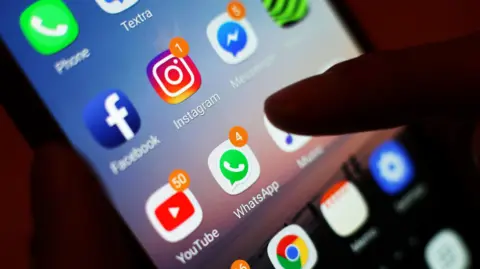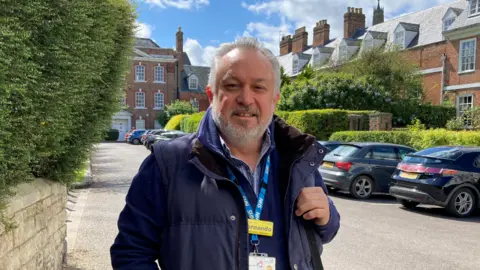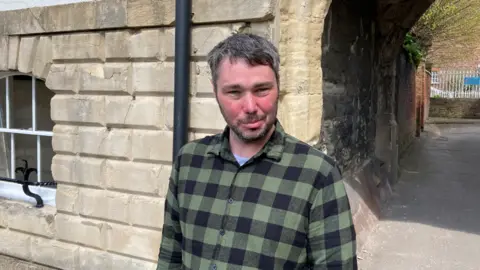Gloucestershire mobile networks begin 3G switch-off
 PA
PAMobile network providers in Gloucestershire have started switching off access to their 3G service.
Switching off 3G will make more space for the faster 4G and 5G services, yet some devices such as frailty alarms might still rely on a 3G connection.
Fernando Parra, an employment specialist for the NHS said those who rely on 3G only won't be able to "connect with anybody and that includes the NHS".
Vodafone and EE have completed their switch off, with Three expecting to follow suit by the end of the year. O2 will not begin the switch-off until 2025.

Mr Parra helps people with mental health issues find work, and said that after the Covid-19 pandemic a lot of people lost connectivity by staying at home.
Once 3G is switched off, they will be "even poorer," he said.
Most modern devices support 4G and 5G access, though some older devices could stop receiving data once the 3G network goes.
Digital Inclusion Manager at Gloucestershire Rural Community Council, Daniel Gail, said the switch off will have a "tremendous impact".
"There are already areas that struggle to get a connection due to hills, forests and Gloucestershire's already-limited broadband," he said.
Mr Gail said the loss of 3G might leave people in more rural areas isolated, especially if they're using an older mobile phone or care system.
"Individuals' health and care technology needs could run on it" said Mr Gail.

Vodafone UK's chief network officer, Andrea Dona, said 3G use had "dropped significantly" - with less than than 4% of its customers' data being used on its 3G network.
The company says it is working with third parties, including charities, to help customers.
Support for Vodafone customers about how to check if a phone is capable of accessing 4G is available on their website.
The UK government and mobile phone operators have said all 2G and 3G services will be shut off by 2033 at the latest, with 3G networks being shut first.
